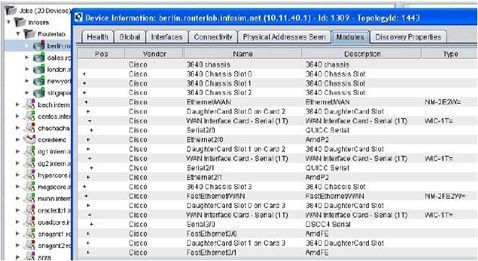-
Call Us:1.800.561.4019
Newsletter
For a Free Quote...
Latest Blog Posts
Blog Categories
Telnet Networks News
Application Intelligence: THE Driving Force In Network Visibility
 Business networks continue to respond to user and business demands, such as, access to more data, bring your own device (BYOD), virtualisation and the continued growth of the Internet of Things.
Business networks continue to respond to user and business demands, such as, access to more data, bring your own device (BYOD), virtualisation and the continued growth of the Internet of Things.
Historically much of the traffic that runs through these networks has been known to network administrators but access to application and user data remains lacking.
Application intelligence - the ability to monitor application flows based on application type - provides the insight that is desperately required to get more visibility into what is happening on networks.
Application intelligence can dynamically identify all applications running on a network. In addition, well-designed application intelligence solutions generate a wealth of information, such as geo-location data, network user types, device types, operating systems and browser types.
The key to success is integrating application intelligence in to enterprises purpose-built monitoring tools without overwhelming existing processes. Offloading the packet processing required to generate this application intelligence to dedicated hardware visibility solutions enables the monitoring tools to work better, and deliver better insight into network anomalies, problems and concerns.
Network visibility: the paradigm shift
The ubiquitousness of mobile computing in everyday life now means that the use of networks, network access and applications over networks has exponentially risen. The huge challenge facing network managers and operators is how to effectively monitor the performance, incidents and problems that come with an increase in applications and services traveling across networks.
In addition, today's network security threats are big business – motivated by financial gain and much more sophisticated, prevalent and insidious than in the past. There are now whole communities dedicated to the sole purpose of cracking network security, many of which have gained international notoriety.
IT security professionals are struggling to keep up with the ever-escalating war between those trying to break in, and those trying to keep them out. As a result, organisations need to increase the effectiveness of network monitoring and network security by using the following application intelligence controls.
Profile the network
A network profile is an inventory of all the assets and services using the network. As the profile changes over time, network operators and defenders can monitor for emerging concerns. Most modern data-centre applications require great communication performance.
However, often these applications experience low throughput and high delay between the data centre, users and back-end servers that perform other operations. Application intelligence can help to profile a network by identifying all applications, performance issues across the network and how application traffic affects overall network performance.
 Network spikes
Network spikes
One of the most common things that can kill network performance is a huge spike in traffic that overwhelms resources. These types of events can slow down or even disable an otherwise functioning network.
With application intelligence, monitoring tools can observe sudden spikes in a specific type of application traffic – and then take action to either mitigate the effect or alert the proper people that can address the issue. With this knowledge, monitoring systems and IT, enterprises can prevent localised or global outages, especially in mobile service provider environments.
 BYOD effects and issues
BYOD effects and issues
One of the biggest issues facing network operators in the age of mobile devices is the BYOD phenomenon. Unregulated devices suddenly linked to your network and using it in ways that are unauthorised, or just unexpected, can wreak havoc on network performance.
Application intelligence allows you to use operating system information troubleshoot and predict BYOD effects. By collecting user information about the browser types used for each application, business can understand the impact of devices and trends in user behaviour. Organisations can capture rich user and behavioural data about the applications that are running, and determine how, when, and where users are employing them.
Capacity planning
Planning for your network capacity can be the difference between a smoothly functioning network and a disastrous mess of a network. Application intelligence can solve this problem by providing the exact data you need - who is using the network, what applications are being run, and from what location they are being accessed.
Good application intelligence also provides geo-location of application traffic to see application bandwidth and data distribution across the network. With the right tool, geo-location information allows identification beyond country, county and town, right down to neighborhood locations.
 Filter for specific information
Filter for specific information
The biggest variable in a network are the users employing it. They are the ones that create the demand for resources, the traffic flows and the security threats that plague network operators on a daily basis.
Application intelligence allows network operators to audit for security policy infractions and verify network user activity in following set policies. Application intelligence also allows for protection against known bad websites.
Avoid the application tsunami
Getting an accurate picture of what is happening in the network in real-time, and understanding exactly what is causing it, allows a network operator to turn a potential network disaster into a mere nuisance.
Application intelligence allows a savvy network operator to prepare for network "tsunamis" from specific applications or events – setting up alerts or actions ahead of time.
The real role of application intelligence
More and more people are using networks for more and more functions – networking is a deeply interwoven part of our everyday life. However, with this use, comes increased demands and needs. Application intelligence helps you always get the right alert at the right time, with no alert storms that leave you guessing about the real problem.
Today, network operators must monitor all aspects of their networks to maintain functionality. That includes monitoring applications along with the critical parts of application delivery, for example, servers and services that are used across the network.
Recognising and reacting to easily identifiable, trouble-making applications can mean the difference between functioning and failing. Operators must proactively head off application issues with careful capacity planning.
Roark Pollock is vice president of visibility solutions at Ixia
Thanks to ITProPortal for the article.
When you subscribe to the blog, we will send you an e-mail when there are new updates on the site so you wouldn't miss them.





Comments